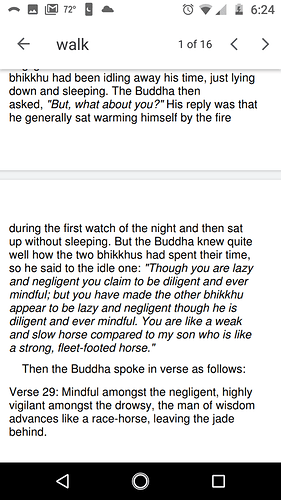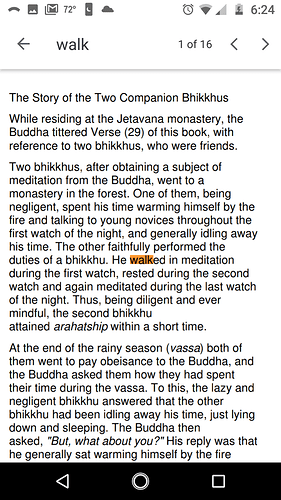I’m curious about Buddha’s comments related to sleep. From an initial review, I came across some of the following suttas, and was hoping perhaps you may have some other suggestions:
AN 3.16 SuttaCentral
-Describes the three watches of the night and sleeping on the right side, which may have benefits for reducing stress: “Effects of posture on sympathetic nervous modulation in patients with chronic heart failure” Fujita et al., Lancet, 2000 10.1016/S0140-6736(00)03240-2
AN 6.17 SuttaCentral
-Encourages moderation in sleep
AN 03.034 Hatthaka Sutta: To Hatthaka
-A lovely sutta that describes how a even in harsh circumstances, the Buddha sleeps well
“cold, lord, is the winter night…a time of snowfall. Hard is the ground trampled by cattle hooves. Thin is the spread of leaves. Sparse are the leaves in the trees. Thin are your ochre robes. And cold blows the Verambha wind. Yet still the Blessed One says, ‘Yes, young man. I have slept in ease. Of those in the world who sleep in ease, I am one.’”
The Buddha replied: “…Suppose a householder or householder’s son has a house with a gabled roof, plastered inside & out, draft-free, with close-fitting door & windows shut against the wind…Would he sleep in ease, or not?”
“…Yes, lord, he would sleep in ease. Of those in the world who sleep in ease, he would be one."
“But what do you think, young man. Might there arise in that householder or householder’s son any bodily fevers or fevers of mind born of passion so that — burned with those passion-born fevers — he would sleep miserably?”
“Yes, lord.”
"As for those passion-born fevers — burned with which the householder or householder’s son would sleep miserably — that passion has been abandoned by the Tathagata, its root destroyed, made like a palmyra stump, deprived of the conditions of development, not destined for future arising. Therefore he sleeps in ease.”
AN 05.210: Mutthassati Sutta (AN 5.210)
-Explains how mindfulness is helpful before sleep
"There are, bhikkhus, these five disadvantages of falling asleep with forgetful mindfulness and without thorough understanding. Which five? One sleeps in discomfort, wakes up in discomfort, sees evil dreams, the devas do not protect one, and what is unclean gets emitted. These, bhikkhus, are the five disadvantages of falling asleep with forgetful mindfulness and without thorough understanding.
There are, bhikkhus, these five advantages of falling asleep with set up mindfulness and thorough understanding. Which five? One sleeps in comfort, wakes up in comfort, does not see evil dreams, the devas protect one, and what is unclean does not get emitted. These, bhikkhus, are the five advantages of falling asleep with set up mindfulness and thorough understanding."
MN 129: SuttaCentral
-Explains the simile of the mountain and mentions benefits when resting
“Furthermore, when an astute person is resting on a chair or a bed or on the ground, their past good deeds—good conduct of body, speech, and mind—settle down upon them, rest down upon them, and lay down upon them. It is like the shadow of a great mountain peak in the evening as it settles down, rests down, and lays down upon the earth. In the same way, when an astute person is resting on a chair or a bed or on the ground, their past good deeds—good conduct of body, speech, and mind—settle down upon them, rest down upon them, and lay down upon them. Then that astute person thinks, ‘Well, I haven’t done bad, violent, and corrupt things. And I have done good and skillful deeds that keep me safe. When I pass away, I’ll go to the place where people who’ve done such things go.’ “
AN 11.016: Metta (Mettanisamsa) Sutta: Discourse on Advantages of Loving-kindness
-Describes metta as a gateway to sleep:
"Monks, eleven advantages are to be expected from the release (deliverance) of heart by familiarizing oneself with thoughts of loving-kindness (metta), by the cultivation of loving-kindness, by constantly increasing these thoughts, by regarding loving-kindness as a vehicle (of expression), and also as something to be treasured, by living in conformity with these thoughts, by putting these ideas into practice, and by establishing them. What are the eleven?
- "He sleeps in comfort. 2. He awakes in comfort. 3. He sees no evil dreams. 4. He is dear to human beings. 5. He is dear to non-human beings. 6. Devas (gods) protect him. 7. Fire, poison, and sword cannot touch him. 8. His mind can concentrate quickly. 9. His countenance is serene. 10. He dies without being confused in mind. 11. If he fails to attain arahantship (the highest sanctity) here and now, he will be reborn in the brahma-world.”
Other Aspects of sleep: Suttas that discuss polyphasic sleep (i.e., taking naps during the day)–the Buddha may have done this:
-The Buddha goes to sleep at dawn after meditating at night.
MN036 Maha-Saccaka Sutta: The Longer Discourse to Saccaka
-The Buddha takes an afternoon siesta:
“…does the Master Gotama recall sleeping during the day?"
“I recall, Aggivessana, in the last month of the hot season, after the meal, returning from my almsround, setting out my outer robe folded in four, lying down on my right side, and falling asleep while mindful & alert.”


